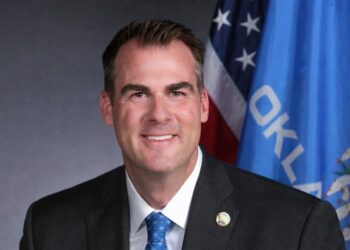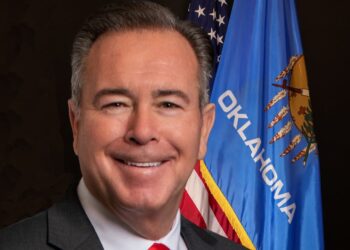OKLAHOMA CITY (OBV) – The Oklahoma Department of Environmental Quality wants Oklahoma businesses to know that the DEQ is always available to help them become compliant with its regulations.
The Oklahoma Business Voice spoke with DEQ Executive Director Scott Thompson about what the DEQ does and why it is important for businesses to get in touch with the agency about getting in compliance.
“We’re very proactive in terms of trying to help people comply. That’s always our goal, to give people some opportunities to comply,” Thompson said. “What I’m interested in is outcomes.

Our goal is to help everyone be in compliance. That’s really critical from a business standpoint and a liability standpoint. As much as we can do with that, the simpler we can make it the better.”
The DEQ implements both federal and state environmental laws and regulations and oversees a variety of programs.
DEQ programs include air, water, which includes both drinking water and wastewater, solid waste, hazardous waste and radiation, among others.
The agency also has a brownfields program, which concerns recycling property for reuse, something often done in local cities.
“Much of Bricktown, and lots of places in Oklahoma City and Tulsa, and some other parts of the state have been reused to build hotels, department stores, other things too,” Thompson said.
DEQ has separate councils for its different programs, including a Water Quality Advisory Council, a Solid Waste Management Advisory Council and an Air Quality Advisory Council, as well as others – a unique setup, unlike other agencies that run rules and may have a board, according to Thompson.
The governor, president pro temp of the Senate and the speaker of the House appoint members to DEQ councils to represent different sectors, either public or private, as well as other interested parties. Nonprofits from across the state can also sit on the councils.
“We have a very open process, and we like it that many of our council members are very familiar with the subject matter or work in the industry that’s concerned, because we want to make sure the rules do not have unintended consequences, that they are not written poorly,” Thompson said. “It’s not bureaucrats writing these rules in a void; we actually seek input from interested parties and welcome it and try to consider that and craft good rules.”
The councils write rules that are presented to the Environmental Quality Board for consideration. Once the board passes a rule, it goes back to the legislature and governor for approval.
Thompson says the councils do a good job of ironing out ideas and working out issues that are considered controversial or questionable.
“That process works really well, because it helps us write better rules, and it’s important for businesses to pay attention to that and participate in that,” he said.
Thompson explained the difference between a state law and a regulation. He said laws are passed by the House and the Senate and signed by the governor, adopting it as a state statute. When the bill becomes a statute, it officially becomes state law.
The DEQ’s councils and board write regulations on how to implement statutes related to environmental quality concerns, interpreting the statute’s requirements.
“Occasionally, a statute, a law may be clear enough to directly implement and not need interpretation,” Thompson said. “But most of the time, especially when we’re trying to adopt federal regulations and clarify those for how they would actually be applied in Oklahoma, it’s really important to get those right and try to make it a little more user friendly to understand how it should work.”
Oklahoma business community members are welcome to reach out to the DEQ if they have questions about pending laws and regulations related to the agency.
“People can talk to us,” Thompson said. “Businesses can inquire with staff and the right program about an issue that’s going on or a potential bill or a draft regulation that we’re considering, and have some interaction that way.”
Thompson says he and his team have a customer service, rather than enforcement, approach when it comes to getting businesses in compliance with regulations.
“The front end to everything is customer assistance. Most people – the vast majority of people in business – will do the right thing if they know what it is, what they’re supposed to do. Somebody who is running a small business…they don’t have time to read the Federal Register every day and try to understand what it means,” he said. “The point is to try to help people stay in compliance or get in compliance and work with folks, and the vast majority of folks will [get into compliance].”
The DEQ has on occasion been firm with businesses, fining them to coax them to get in compliance with regulations, and a small number of times has had to prosecute, Thompson said.
But the agency works to avoid harsher measures.
“If we can have the staff work with people up front, explain a program and what compliance means, that saves us a lot of resources, and then we can get the lawyers out for the cases that require much more attention,” Thompson said.
Thompson advises business community members who have questions for the DEQ to start at the agency’s website, deq.ok.gov. The agency also shares information through its Facebook and Twitter accounts.

















